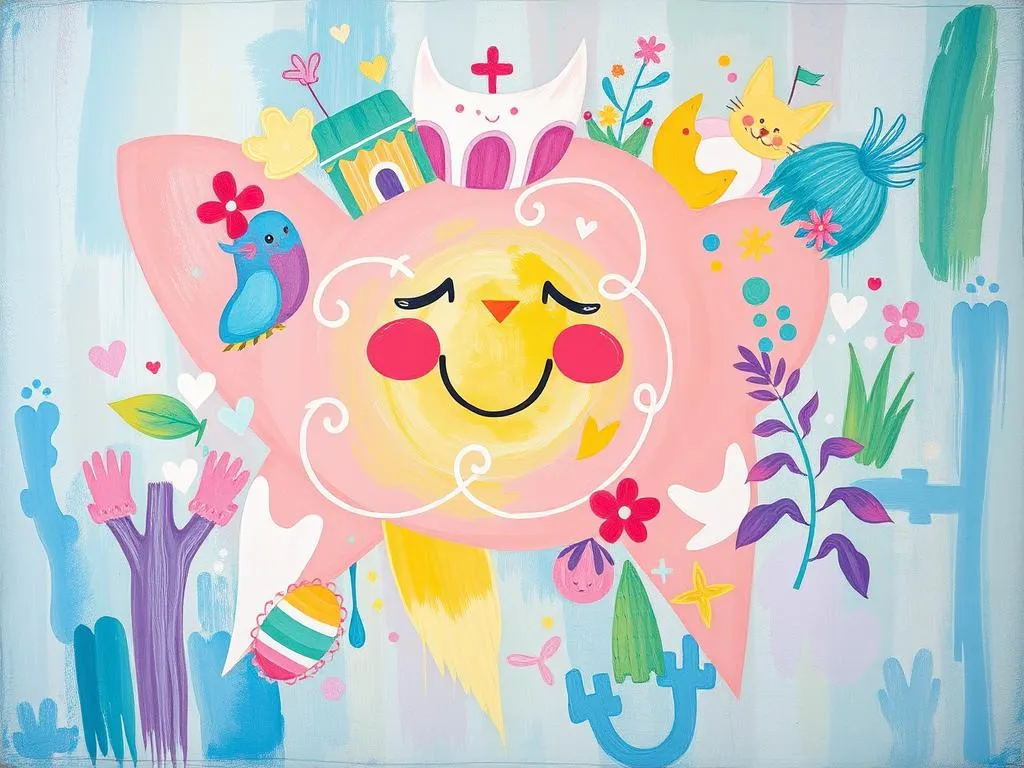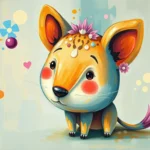
Have you ever woken up from a dream so vivid that it lingered with you throughout the day? Perhaps you found yourself in a peculiar place, conversing with people you’ve never met, or even facing an impossible challenge. Dreams are fascinating windows into our subconscious, rich with symbolism and meaning. They can offer profound insights into our emotional states, desires, and fears, serving as guides for personal growth.
In this article, we’re going to explore the symbolism of dreams, analyze various dream experiences, and discuss how to harness these insights for personal development. So, grab a cup of tea, get cozy, and let’s delve into the enchanting realm of dreams together.
Whispers from the Subconscious: Decoding Dream Symbols
Dreams are often laden with symbolism that can vary significantly across cultures and personal experiences. Understanding these symbols can provide clarity and insight into our waking lives. For instance, water in dreams often represents emotions. Calm water might signify peace, while turbulent waves might indicate emotional turmoil. Similarly, flight can symbolize freedom and escape, but it may also reveal feelings of anxiety or a desire to transcend current challenges.
One common symbol is keys. Keys often represent solutions and opportunities. Dreaming of finding a key may suggest that you are unlocking new potentials in your life, while losing a key could indicate feelings of helplessness or being shut out of important aspects of your life. Another potent symbol is houses, which can represent the self. Each room may symbolize different facets of your personality or life experiences. A beautifully decorated room might reflect a positive self-image, while a cluttered or dark room might indicate areas of your life that need attention.
Let’s not forget animals in dreams. They can embody our instincts and desires. For example, dreaming of a lion may evoke feelings of courage and strength, while a snake might represent transformation or hidden fears. The key to interpreting these symbols lies in your personal associations and feelings towards them—what resonates with you may differ greatly from traditional interpretations.
Dreamscapes: Personal Experiences in the Realm of Dreams
Now, let’s take a stroll through some common dream scenarios and explore what they might signify. Each experience encapsulates unique emotions and challenges that many people face.
1. The Exam of Life: Test Anxiety
Imagine you are back in school, sitting for an important exam you didn’t prepare for. Your heart races, palms sweat, and you feel utterly unprepared. This scenario often reflects performance anxiety in waking life. It may suggest that you feel unprepared for a challenge or are facing judgment in your personal or professional life. Reassess where this pressure is coming from and consider ways to alleviate it.
2. The Weight of the World: Carrying a Heavy Load
In another dream, you find yourself burdened by an overwhelming weight, struggling to move forward. This dream can symbolize the emotional baggage you carry. It invites you to examine what is weighing you down—be it unresolved conflicts, stressful relationships, or self-imposed expectations. Recognizing these weights can be the first step toward releasing them.
3. The Endless Maze: Getting Lost
Picture wandering through an intricate maze with no clear exit. This experience often signifies feelings of being trapped or uncertain in your waking life. It can indicate a lack of direction or confusion about your goals. This dream urges you to pause and reflect on your current path. Are there choices you need to make to find your way out?
4. The Falling Dream: Loss of Control
Now, imagine yourself plummeting from a great height, the ground rushing up to meet you. Falling dreams are quite common and often reflect a sense of loss of control or insecurity in your life. They might also reveal fears of failure or vulnerability. Rather than fear the fall, consider what it might be teaching you about resilience and the need to regain control in certain areas of your life.
5. The Reunion: Encountering the Past
Lastly, think about a dream where you reunite with a long-lost friend or family member. This dream can evoke feelings of nostalgia and may represent unresolved issues or emotions you associate with that person. It might suggest a need to reconnect with parts of yourself or address unfinished business from your past, guiding you toward healing and closure.
Dreams as Stepping Stones: Your Journey of Growth
By understanding the symbols and experiences in your dreams, you open the door to profound personal growth. Dreams encourage us to become more aware of our emotions and challenges, helping us navigate our waking lives with greater clarity. So how do we transform these insights into actionable steps?
First, keep a dream journal. Recording your dreams can help you identify patterns and recurring themes. Reflect on the symbols and experiences within your dreams, and ask yourself what they might reveal about your current life situations. This practice can deepen your understanding of your subconscious mind and bring to light areas for personal development.
Second, engage in self-reflection. After interpreting your dreams, take time to reflect on how they correlate with your waking life. Ask yourself what emotions surface when you think about these dreams and how they relate to your current struggles or aspirations. This reflection can lead to powerful realizations and inspire you to take proactive steps toward change.
Third, consider creative expression. Dreams can also serve as a source of inspiration. Use your dreams as a springboard for artistic creativity—write a poem, create a painting, or compose music that captures the essence of your dream. Not only does this foster personal expression, but it also allows you to process emotions and experiences more deeply.
Lastly, embrace mindfulness and meditation. Cultivating a mindful approach to your thoughts and feelings can enhance your ability to connect with your dreams. Meditation can help you clear your mind before sleep, setting the stage for more lucid and insightful dreams. As you awaken to your inner landscapes, you’ll find that you can navigate your emotions and challenges with greater ease.
In closing, dreams are not merely random sequences of images; they are intricate narratives woven from the threads of our subconscious. They whisper truths about our fears, desires, and experiences, guiding us toward greater self-awareness and growth. By embracing the language of dreams, we can uncover hidden wisdom and embark on a journey of profound personal transformation.
So the next time you find yourself lost in a dream, remember that every symbol and scenario can lead you to a deeper understanding of yourself. Embrace the journey, for within your dreams lies the key to unlocking your fullest potential. What will you discover on your next adventure into the night?







